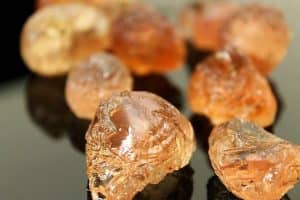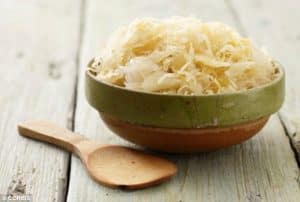Have you ever thought that the symptoms of so-called high acidity of the stomach mean in fact that the stomach acidity is low? And you suffer from lack of acid production necessary for digestion? Did it ever occur to your mind that for many years you have contributed to the suppression of your stomach acid production, by using acidity pills? If your or your loved ones are from those, please read more …
Contrary to popular beliefs – thanks to (Tums) commercials – there is belief that heartburn and acid reflux are caused by too much stomach acid. The truth is, low stomach acid are the cause of heartburn. The vast majority of those suffering heartburn, gas, and indigestion have too little stomach acid, rather than too much! This is especially manifested in people over 40, as stomach acid production declines with age. Hence there are other factors that affect acid production.
Hypochlorhydria, or low stomach acid. This condition means the stomach is unable to produce enough hydrochloric acid for digesting food.
Symptoms of Low Stomach Acid
Here are some of the common symptoms caused by low stomach acid:
- Bloating, belching, and flatulence immediately after meals
- Heartburn
- Indigestion, diarrhoea, or constipation
- Chest pain.
- Difficulty swallowing (dysphagia)
- Regurgitation of food or sour liquid (acid reflux)
- Sensation of a lump in your throat
- Undigested food in stools
- Acne
- Eczema
- Diabetes
- Rectal itching
- Chronic Candida
- Dry cough
- Hair loss
- Multiple food allergies
- Hoarseness or sore throat
- Iron deficiency
- Weak, peeling, or cracked fingernails
- Chronic fatigue
- Adrenal fatigue
- Dry skin
- Various autoimmune diseases
- High triglycerides and cholesterol
- Estrogen dominance and PMS (which leads to breast cancer)
What makes low stomach acid dangerous
This is what happens when you have low stomach acids:
1- An Inability to Digest Protein


2- Mineral Deficiencies




3- Overgrowth of Pathogens and Illness




4-Leaky Gut

Why Low Stomach Acid Lead to Heartburn & Indigestion?
Too LITTLE stomach acid is far more a common problem when heartburn is concerned than TOO MUCH acid!
Stomach acid signals to the Lower Esophageal Sphincter (which separates the stomach and esophagus) to close tightly when the body has enough acid to digest the food after eating. However, If there is no enough stomach acid to digest the food, the Lower Esophageal Sphincter will not receive this signal and will not close tightly, allowing acid and undigested food sneak through the esophagus causing heartburn and indigestion.
In addition, signalling to the small intestine will also be delayed, if food is not thoroughly digested. Food can stagnant in the stomach for longer, making acid reach the esophagus for longer. This is why having a stomach acid test done is extremely essential.
What makes us have low stomach acids?









How to treat low stomach acids naturally
1. The best way to treat it, is to use Betaine HCL with pepsin digestive enzyme supplement to aid stomach digestion especially when eating protein. I will show you here how to do the Betaine HCL self-test to find out whether you have a low stomach acids without going with expensive test .
2. Add 1 tablespoon of raw organic apple cider vinegar (raw is important) to a glass of water and drink it about 10-15 minutes before and after each meals. It naturally encourages HCL production and aids for digestion.
3. Add lemon or lime if you drink with meals, the acidic nature of these fruits helps with digestion. It’s best if you don’t drink with or after meal.
4. Eat Manuka Honey. This honey has proven in tests to possess antibacterial activity and other pathogens.
5. Take a Multivitamin and Multi-mineral. Because low stomach acid leads to nutrient malabsorption. Make sure you take these vitamins: vitamin C, vitamin K2, iodine, vitamin D and magnesium.
6. Slippery elm, marshmallow roots and Aloe Vera extracts are mucilaginous species that have demulcent properties and that can help soothe the digestive tract by providing an extra layer of mucus.
7. Take Glutamine: It is an amino acid that can be really helpful to heal an inflamed and irritated gut.
8. Bromelain found in pineapples and Turmeric, reduces inflammation and helps digest protein. That makes it easier to absorb nutrients and help heal the gut faster. Those two supplements can help soothe inflammation. Bromelain helps absorb nutrients even more because of its protease enzymatic potential. Very fragile and irritated gut barriers can become more irritated by Bromelain though, so go slow with it.
9. DGL (deglycyrrhizinated licorice) is a supplement of licorice where the potentially harmful compound glycyrrhizin, has been removed. DGL can help soothe inflammation and irritation and has also been shown to be useful in healing ulcers.
10. Eat salt with your meals. Make sure it is unrefined salts, like Celtic sea salt or Himalayan Pink Salt. Salt helps increase stomach acid production.
11. Reduce carbohydrates in your diet. Try paleo or vegetarian diet focusing on good sources of protein and healthy fats. Carbs significantly reduce the amount of stomach acid produced.
12. Get zinc– Either eat foods that are high in zinc such as pumpkin seeds or take a supplement. Zinc is essential for the production of stomach acid.
13. Drink a daily shot of cabbage juice, it increases stomach acid production. If you can’t do that, use vitamin U, however, this can suppress thyroid activity due to the high amounts of goitrogens, so you need to deal with it carefully.
14. Building a healthy balance of intestinal bacteria is important for healing. Hence it is essential to digestive health, and protecting against pathogens. Eat fermented foods, especially fermented sauerkraut or kefir with each meal, it increases stomach acid and good bacteria. A glass of homemade kefir, contains as many as 5 trillion beneficial microorganisms. That is more bacteria than any supplements can offer. fermented food offer more benefits than probiotics supplements alone, including minerals, vitamins, protein, amino acids and antimicrobial agents.
15. Reduce stress, particularly around meal time. Stress and anxiety severely hinder stomach acid production.
16. Drink Water. A study found that those who drank water compared to those who took pharmaceutical acid-inhibiting drugs, increased there stomach pH in just minutes.
17. When dealing with gut problems, Bone broths, egg yolks and organ meats like liver should be an integral part of your diet.
18. Eat papaya and drink ginger tea or chew a small piece of ginger between meals or add ginger to your smoothie to stimulate stomach acid production
19. Stop the Antacids pills. In the United States alone they spend 13 billion dollars on anti-acids drugs to deplete stomach acids levels even more. It is very important that you test your stomach acid level.
20. Digestion start in the mouth: Chew thoroughly, most people forget to chew their food enough.
21. Myrrh and Arabic (Mastic) gum: is used in Arabic and eastern medicine as a natural antibiotics. It is a resin from the Pistacia lentiscus plant, it has proven to be very helpful in treating most ulcers which is caused by a bacteria called Helicobacter pylori (H. pylori) and that bacteria can also contribute to a lower acidity of the stomach and heartburn or GERD problems.


Foods to avoid







Sources
*http://www.ncbi.nlm.nih.gov/pmc/articles/PMC1521464/
*http://www.naturalendocrinesolutions.com/archives/why-is-hypochlorhydria-common-in-thyroid-conditions/
*https://www.ncbi.nlm.nih.gov/pubmed/12754530
*Jonathan M.D. Why Stomach Acid is Good For You
*Stomach Acid Imbalance: Overview, Symptoms, Causes, Natural Treatments and Medicine
*http://www.jigsawhealth.com/articles/stomach_acid_reflux.html
*http://bodyecology.com/articles/low_stomach_acid_symptoms.php
*Adrenocortical function in experimental protein. PubMed 1979.-
*http://www.ncbi.nlm.nih.gov/sites/entrez?cmd=Retrieve&db=PubMed&list_uids=109732&dopt=AbstractPlus

